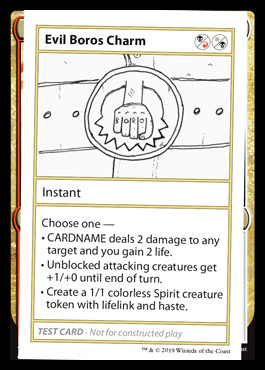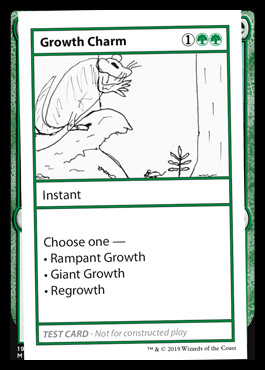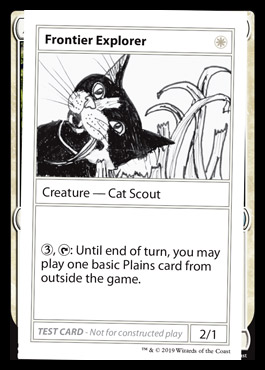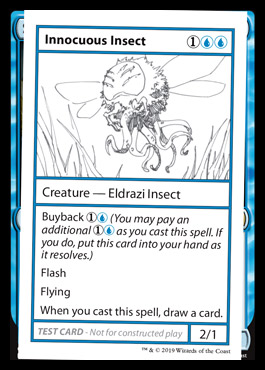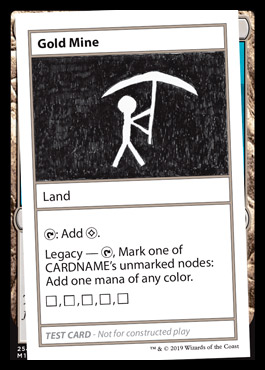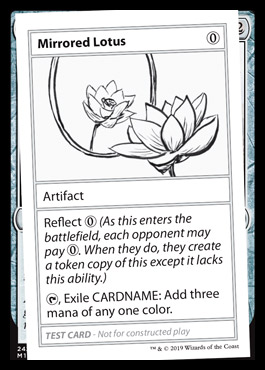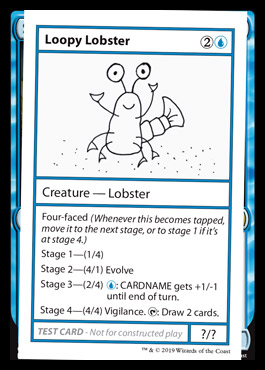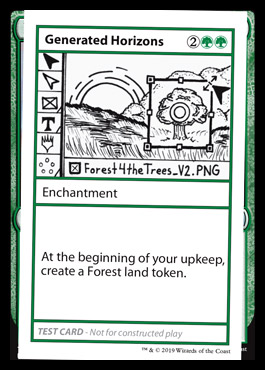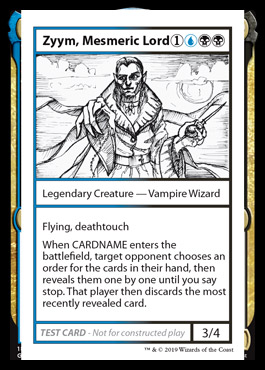I didn't really want to go for round two, but here we are. Let's go over this point by point-
A shared universe isn't the same thing as doing a crossover. For example, all of the different Star Trek series take place in the same Multiverse, but they're fundamentally part of the same franchise. The same is true for Marvel superheroes. They all exist in the same world. I don't like nitpicking, but when you're first example of a crossover is just a shared universe, then that's cause for alarm. You're comparing a bunch of things that were meant to exist together with two things that certainly were not. A Big Time Rush/Yo Gabba Gabba crossover is not the same thing as Spider-Man hanging out with Tony Stark.
This isn't to say that crossovers don't work- but there has to be some conscious blending of worlds. For example, that BTR Yo Gabba Gabba crossover I previously mentioned would not have worked had they just smashed the two IPs together. The show writers took time and went out of their way to make the two mesh together. They made one show exist as a fictional production in the world of the other, so the characters could exist and interact with one another in a canon universe.
The MLP MTG cards (and Grimlock, for that matter) are not a part of the actual Multiverse- I don't even think their existence is canon in the silver-border Multiverse. They didn't get any of the blending that would have been required to make them work. Sword of D&D and Nerf War actually just fine because they represent versions of other things that in the magic world. For example, Nerf War is goblins playing with Nerf toys, while Sword of D&D is a tool for a character in a game of Magic to use, and reference the sword cycle from Mirrodin. The My Little Pony cards and Grimlock are just characters who don't fit with anything else in Magic- they're just kind of thrown in without any worldbuilding.
"Treated Seriously" means "Treated with the reverence and respect that would be given to any other card under normal circumstances." Pretty much everything you said about Unstable is correct. WOTC did an objectively good job building the set, building the world, and making something that was fun to play. Even though they used some satirical elements in the set, Unstable design implemented some elements that expanded the horizons of possible design space for Magic and pushed the limits of modern printing technology. They used space that black-border cards couldn't for rules reasons, like the Contraptions, the Triple Strike mechanic, and cards with the same name having different effects.
However, Unstable really isn't comparable to the My Little Pony cards other than in their silver border. Unstable was a real Magic set, despite the fact that it had some satirical elements. The My Little Pony cards were not treated like "real" Magic cards. There wasn't even an attempt to try and make them feel like something that would exist in even a silver-bordered Magic set- they just put a bunch of My Little Pony references on some cardboard and sold it.
There's more to this "seriousness" issue, but I'd really need to write something separate about it in order to fully explain my frustration. There's a heck of a lot more too it than the Ponies- they're just the straws that broke the camel's back.
You were entirely missing my point. Magic is getting more popular because WOTC has been doing the work to make it easier for more people to pick up the game. Pretty much every point you listed except for population growth are things Wizards actively fosters.
However, part of that has been marketing the game with a certain brand. Wotc has been trying to sell the Magic multiverse as a dark fantasy world. As an example, the trailer for War of the Spark featured:
-A guy getting tortured by a Zombie.
-A building collapsing on a family.
-A second guy being stabbed repeatedly by a bunch of Zombies.
-A woman burning to death.
WOTC put a lot of effort into making sure that even humorous elements of their worldbuilding fit the overall tone of the game. I would argue that Unstable was sold as "A satire that we gave serious love and attention to make good." As a result, we got a set that still felt the same as the rest of Magic, even though it wasn't entirely gloom and doom.
The My Little Pony cards don't match this trend at all. Everything is just sunshine and lollipops from a marketing perspective for these cards. They just don't feel tonally consistent with anything we've gotten in the last ten years from Magic. If Wizard's was going to take the game as a whole in a lighter direction, then fine, but this was still too soon.
I think the complexity argument is entirely different from this except for the "WOTC has been doing the work to make it easier for more people to pick up the game" statement I made above. The "it's not okay for Magic" thing I was trying (poorly) to refer to was the tonal stuff I talked about earlier.
So... it started 25 years ago? Pretty much nothing you just stated has been happening since day one of the game. The concept of Planeswalkers and a Multiverse was introduced in the rulebook for Limited Edition Alpha- the first Magic set. Coincidentally, the first Magic expansion, Arabian Nights, was heaviy influenced by elements of Middle-Eastern culture. Even if you don't want to consider Arabian Nights a mock-up for a pop-culture setting, we've still been getting worlds tied very closely to real-life cultures or pop-culture since at least Kamigawa... in 2004. Advanced technology has been a staple of the Multiverse since the early as well, with Urza walking around in Power Armor back in Invasion. Shortly after in Mirrodin, we saw an entire world of machines. Theros and Kaladesh were not introducing anything brand new to the game from a flavor perspective- they just innovated on tropes that already existed. Now, mechanically speaking, there was a lot that was new in those worlds- but none of the flavorful concepts they were playing with was entirely new at all. I would go as far to say that something like Theros is a logical outcome of previous Magic lore.
Trying to claim that the Magic Mythos is being expanded is just not entirely accurate, because it's been pretty much everywhere since the early days. We're just seeing a new evolution on pre-existing game tropes. That doesn't make any Pony that's out of the ordinary fit with the rest of what we already have.
This is probably the best argument I've seen one use in defense of these cards. Although the My Little Pony cards did get a fair bit of media attention when they were first announced, there's a good chance that no one's going to remember them in a few years. Unless the arena sleeves are super popular or something, this product could ultimately fade into obscurity. That doesn't justify their existence, but I think it is a rational reason as to why they may not ultimately be bad for the game as a whole. I don't think any arguments in favor of these things is actually better than "they're obscure enough to go unnoticed by anyone who doesn't follow Magic."
I don't really want to argue about this anymore. We're probably never going to reach an agreement on this; therefore, there is no reason to continue to drag out this debate. I feel bad for hurting Velrun and Tzenmoroth's feelings. I don't want to continue to fight about this.
A cultural juggernaut, as Marvel, Disney, and others have proven, is bolstered by the strategic fusion of corporate universes and associations. When you connect a franchise with another, you suddenly meld the interest of millions of people, creating a product that pushes the boundaries of each franchise's target audience. This expands the realm of each franchise's influence massively. It is an age-old trick, and now Hasbro's starting to learn it (for example, by putting "Sword of Dungeons and Dragons" in the Un-set you praise so highly). Crossovers are, in fact, part of the recipe for cultural domination.
A shared universe isn't the same thing as doing a crossover. For example, all of the different Star Trek series take place in the same Multiverse, but they're fundamentally part of the same franchise. The same is true for Marvel superheroes. They all exist in the same world. I don't like nitpicking, but when you're first example of a crossover is just a shared universe, then that's cause for alarm. You're comparing a bunch of things that were meant to exist together with two things that certainly were not. A Big Time Rush/Yo Gabba Gabba crossover is not the same thing as Spider-Man hanging out with Tony Stark.
This isn't to say that crossovers don't work- but there has to be some conscious blending of worlds. For example, that BTR Yo Gabba Gabba crossover I previously mentioned would not have worked had they just smashed the two IPs together. The show writers took time and went out of their way to make the two mesh together. They made one show exist as a fictional production in the world of the other, so the characters could exist and interact with one another in a canon universe.
The MLP MTG cards (and Grimlock, for that matter) are not a part of the actual Multiverse- I don't even think their existence is canon in the silver-border Multiverse. They didn't get any of the blending that would have been required to make them work. Sword of D&D and Nerf War actually just fine because they represent versions of other things that in the magic world. For example, Nerf War is goblins playing with Nerf toys, while Sword of D&D is a tool for a character in a game of Magic to use, and reference the sword cycle from Mirrodin. The My Little Pony cards and Grimlock are just characters who don't fit with anything else in Magic- they're just kind of thrown in without any worldbuilding.
What do you mean by "treated seriously", and how does it conflict with jokes? One powerful way that people gain the respect of others is through good-natured self mockery. By making fun of yourself and laughing with the crowd, you show authenticity, confidence, and likability. The same strategies can be employed by companies. Instead of displaying insecurity in regards to Magic's ties to sillier and cheesier topics, Unstable succeeded by turning it into an enjoyable parody that conveyed self-assurance.
"Treated Seriously" means "Treated with the reverence and respect that would be given to any other card under normal circumstances." Pretty much everything you said about Unstable is correct. WOTC did an objectively good job building the set, building the world, and making something that was fun to play. Even though they used some satirical elements in the set, Unstable design implemented some elements that expanded the horizons of possible design space for Magic and pushed the limits of modern printing technology. They used space that black-border cards couldn't for rules reasons, like the Contraptions, the Triple Strike mechanic, and cards with the same name having different effects.
However, Unstable really isn't comparable to the My Little Pony cards other than in their silver border. Unstable was a real Magic set, despite the fact that it had some satirical elements. The My Little Pony cards were not treated like "real" Magic cards. There wasn't even an attempt to try and make them feel like something that would exist in even a silver-bordered Magic set- they just put a bunch of My Little Pony references on some cardboard and sold it.
There's more to this "seriousness" issue, but I'd really need to write something separate about it in order to fully explain my frustration. There's a heck of a lot more too it than the Ponies- they're just the straws that broke the camel's back.
I could make up any number of explanations for this trend without any of them resting on solid evidence. However, for the fun of it, let me throw out some other, potential reasons for this:
-more widespread acceptance of 'gaming' in general, primarily due to its tie to internet culture, which, thanks to the meteoric rise of the internet, has bled into overall global culture
-population growth, or more crucially, growth in the number of people in the world with enough disposable income to spend it on cardboard
-people who grew up with Magic are now in their 30s-50s, at the height of their income and purchasing power, and their nostalgia is being heavily cashed in by WOTC
-it is easier than ever to learn the game than ever with Arena, Youtube guides, etc
-as more people play the game, they recruit more friends to play, who may recruit others, and so on
-enfranchised players often are involved in Magic for a very long time. Also, most enfranchised players are under 65 (because Magic started in the 90s and primarily targeted young people), so few of them have died yet. Even without much new blood, it might be possible for the total number of players to keep going up, despite the growth slowing
You were entirely missing my point. Magic is getting more popular because WOTC has been doing the work to make it easier for more people to pick up the game. Pretty much every point you listed except for population growth are things Wizards actively fosters.
However, part of that has been marketing the game with a certain brand. Wotc has been trying to sell the Magic multiverse as a dark fantasy world. As an example, the trailer for War of the Spark featured:
-A guy getting tortured by a Zombie.
-A building collapsing on a family.
-A second guy being stabbed repeatedly by a bunch of Zombies.
-A woman burning to death.
WOTC put a lot of effort into making sure that even humorous elements of their worldbuilding fit the overall tone of the game. I would argue that Unstable was sold as "A satire that we gave serious love and attention to make good." As a result, we got a set that still felt the same as the rest of Magic, even though it wasn't entirely gloom and doom.
The My Little Pony cards don't match this trend at all. Everything is just sunshine and lollipops from a marketing perspective for these cards. They just don't feel tonally consistent with anything we've gotten in the last ten years from Magic. If Wizard's was going to take the game as a whole in a lighter direction, then fine, but this was still too soon.
I mean, yeah. "It's not okay for Magic" is code for "it's not profitable". This OC was deemed profitable, and that's why WOTC made it happen. However, complexity at high levels has been deemed unprofitable by WOTC, and as a result we have not seen Time Spiral levels since that block (though Modern Horizons certainly represents a step closer).
I think the complexity argument is entirely different from this except for the "WOTC has been doing the work to make it easier for more people to pick up the game" statement I made above. The "it's not okay for Magic" thing I was trying (poorly) to refer to was the tonal stuff I talked about earlier.
Magic's mythos is being commercialized and expanded. It started with the creation of the Multiverse. Then we started to get planes that were mock-ups of pop culture settings like Ancient Greece. The envelope was further pushed by Vehicles and other technologically-associated props. Magic started to become more pluralistic and more careful about its image. We got more and more products that stretch the definition of Magic, from a digital platform structured like a phone app to this most recent crossover. At this point we have either a watered-down or an expanded definition of Magic, depending on your perspective. This, ironically, is the ultimate mark of franchise success, not the antithesis of it.
So... it started 25 years ago? Pretty much nothing you just stated has been happening since day one of the game. The concept of Planeswalkers and a Multiverse was introduced in the rulebook for Limited Edition Alpha- the first Magic set. Coincidentally, the first Magic expansion, Arabian Nights, was heaviy influenced by elements of Middle-Eastern culture. Even if you don't want to consider Arabian Nights a mock-up for a pop-culture setting, we've still been getting worlds tied very closely to real-life cultures or pop-culture since at least Kamigawa... in 2004. Advanced technology has been a staple of the Multiverse since the early as well, with Urza walking around in Power Armor back in Invasion. Shortly after in Mirrodin, we saw an entire world of machines. Theros and Kaladesh were not introducing anything brand new to the game from a flavor perspective- they just innovated on tropes that already existed. Now, mechanically speaking, there was a lot that was new in those worlds- but none of the flavorful concepts they were playing with was entirely new at all. I would go as far to say that something like Theros is a logical outcome of previous Magic lore.
Trying to claim that the Magic Mythos is being expanded is just not entirely accurate, because it's been pretty much everywhere since the early days. We're just seeing a new evolution on pre-existing game tropes. That doesn't make any Pony that's out of the ordinary fit with the rest of what we already have.
Most people not involved with Magic have not followed the creation of this niche product. If you don't play with said pony cards, I think you will be fine...
This is probably the best argument I've seen one use in defense of these cards. Although the My Little Pony cards did get a fair bit of media attention when they were first announced, there's a good chance that no one's going to remember them in a few years. Unless the arena sleeves are super popular or something, this product could ultimately fade into obscurity. That doesn't justify their existence, but I think it is a rational reason as to why they may not ultimately be bad for the game as a whole. I don't think any arguments in favor of these things is actually better than "they're obscure enough to go unnoticed by anyone who doesn't follow Magic."
I don't really want to argue about this anymore. We're probably never going to reach an agreement on this; therefore, there is no reason to continue to drag out this debate. I feel bad for hurting Velrun and Tzenmoroth's feelings. I don't want to continue to fight about this.


